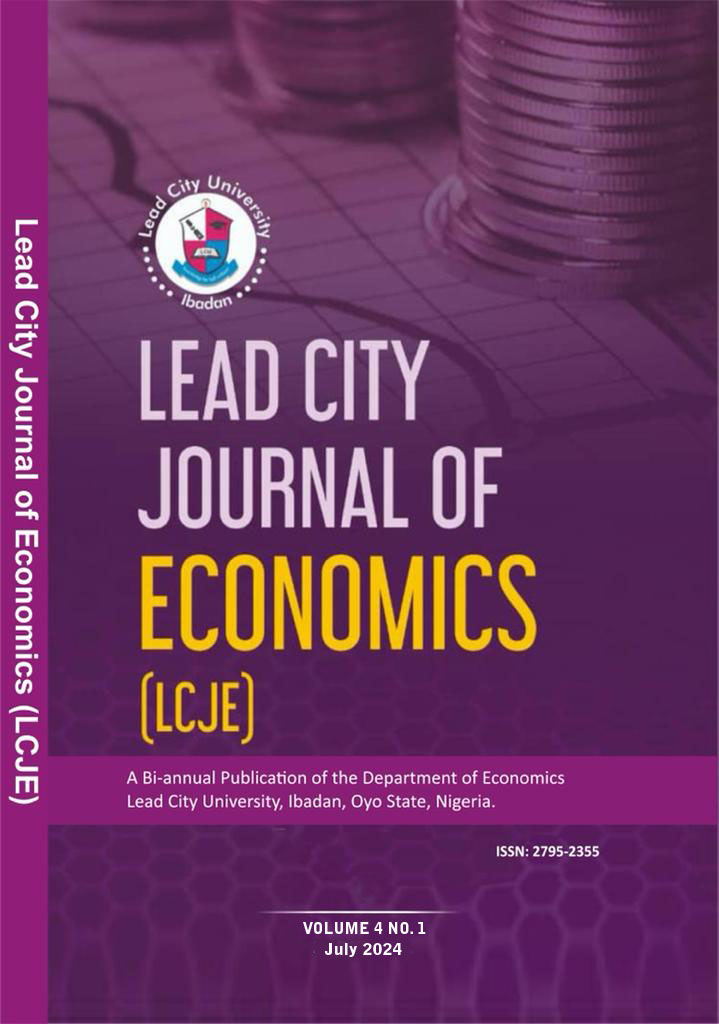Educational Outcomes and Poverty in Nigeria
Keywords:
Education outcomes, final consumption expenditure, poverty rateAbstract
This study examines the relationship between education outcomes and poverty
in Nigeria using time series data covering 1990 to 2021. The data were
analysed using the Autoregressive Distributed Lag (ARDL) technique tso
examine the short- and long-run relationship between education outcomes
and poverty in Nigeria. The ARDL regression results revealed that primary
school enrolment (PSEN), secondary school enrolment (SSEN), tertiary
school enrolment (TSEN), and total education expenditure (TEXEDU) are not
significantly related to the poverty rate in Nigeria. A major implication of this
result is that the government has not been able to adequately finance the
education sector to the extent of contributing positively to human capital
development in the country. This would have boosted productivity and citizens'
income-earning potential, helping to reduce poverty. The study therefore
recommends increasing the budgetary allocation to the education sector to
meet the 26% benchmark recommendation set by the United Nations
Educational, Scientific and Cultural Organization (UNESCO). The
government should also create a special commission for secondary education
in Nigeria, as it has been done for primary education through the Universal
Basic Education Commission (UBEC) at the Federal Government level and
the State Universal Basic Education Board (SUBEB) by the State Government.

